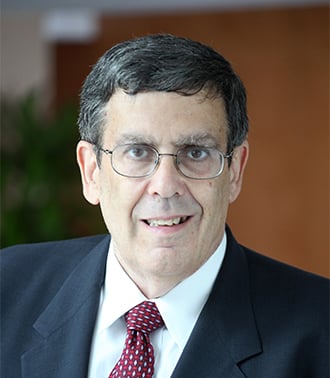EPA Signals More Enforcement Cases for Aftermarket Parts Manufacturers
The US Environmental Protection Agency (EPA) recently signaled that it intends to pursue more enforcement cases against aftermarket parts manufacturers for the diesel trucking industry. In recent public comments, EPA's Director for Air Enforcement, Phil Brooks, highlighted the agency's interest in such cases. The agency has focused historically on the aftermarket parts industry for other motor vehicle sectors, including passenger cars, motorcycles and diesel pickup trucks. In those sectors, EPA has brought enforcement actions against manufacturers and installers of aftermarket adjustments to emissions components, including electronic performance tuners. EPA's recent public comments suggest that the agency might be shifting its attention to the heavy-duty trucking sector, and we would expect a similar focus there. Recent developments in Department of Justice (DOJ) policies restricting payments to third parties for mitigation projects may complicate enforcement efforts in this sector, and regulated parties should keep close watch on how DOJ applies that policy. DOJ's Environment and Natural Resources Division has also signaled that one of the Agency's enforcement priorities is defeat device cases in the mobile source area.1
Since 2006, EPA has settled several enforcement matters against aftermarket parts manufacturers, most of which arose in the context of aftermarket parts designed for use in non-road or racing vehicles:
- Casper's Electronics Inc. (2007) involved an "oxygen sensor simulator," which overrides the check engine light related to catalytic converter malfunctions on automobiles.2 EPA alleged that the sensor simulator caused excess emissions of nitrogen oxides (NOx), hydrocarbons, and carbon monoxide. The company agreed to recall the product, destroy all inventory, and pay an $80,000 fine.
- Edge Products LLC (2012) involved electronic "tuning devices" for diesel pickup trucks that override the check engine light related to the diesel particulate filter.3 The company argued that these devices were only intended for off-road or non-road use, in particular racing. EPA alleged the devices caused excess particulate emissions. The company agreed to offer to buy back the devices, pay a $500,000 fine, and fund a mitigation project for at least $157,000 to replace old wood-burning stoves in areas with identified issues with particulate emissions pollution.
- H&S Performance (2015) involved electronic tuning devices and other alterations for diesel pickup trucks.4 EPA alleged that the tuning devices caused excess NOx, particulate matter, and hydrocarbon emissions. The company agreed to destroy all of the devices, refrain from providing technical assistance to owners relating to the tuning devices, and pay a $1 million fine and fund a $400,000 mitigation project to retrofit wood-burning stoves.
- Harley-Davidson (2016) involved both electronic tuning devices and alleged improper certification of motorcycles sold in the US EPA alleged that the tuning devices caused excess NOx and hydrocarbon emissions.5 The company agreed to stop selling the devices, buy back all inventory from its dealers, pay a $12 million penalty, and give $3 million to the American Lung Association to replace wood-burning stoves. In 2017, DOJ amended the consent decree to remove the $3 million project, citing a June 2017 memorandum from Attorney General Sessions that prohibited third-party payments as a condition of settlement (the Sessions Memo).6 Litigation over the modified settlement is still ongoing.
- Trick Trucks Settlements (2017) involved a variety of electronic tuning devices, engine control module reprogrammers that disabled emissions control systems, and exhaust pipe components that deleted or bypassed aftertreatment on diesel pickup trucks.7 EPA settled administratively with six different companies that installed the equipment. The total fine for all six companies was $109,461.
California's Air Resources Board (ARB) has also been aggressively pursuing aftermarket parts cases. ARB reached its own settlement with H&S Performance and obtained a $750,000 fine as well as $250,000 to retrofit school buses in the San Joaquin Valley.8 In February of this year, ARB settled with JEGS Automotive Inc., a company headquartered in Ohio, for selling performance tuners and other aftermarket devices that were prohibited in California for on-highway use.9 The company agreed to pay $1.7 million, a quarter of which would be used to install air filters in California schools.
Given EPA's reliance on third-party payments in aftermarket parts cases, it is an open question how the agency will proceed in light of the Sessions Memo and the positions DOJ has taken in the Harley-Davidson settlement. Many environmental settlements include Supplemental Environmental Projects (SEPs), which are environmentally beneficial projects that an alleged violator may voluntarily agree to undertake in exchange for mitigation of the penalty to be paid under a settlement agreement. Under EPA's SEP policy, EPA must establish a "sufficient nexus" between the project and the environmental effects of the alleged violations.10
Similarly, a January 9, 2018 memorandum from Jeff Wood, Acting AAG for DOJ's Environmental and Natural Resources Division, emphasized that the Sessions Memo allows payments to third parties that "directly remedy harm to the environment."11 The Wood memorandum notes that a payment in the mobile source context would be consistent with the Sessions Memo "if the payment is used to reduce the same type of harm through the funding of actions at the source or in the same airshed as the source."12 DOJ cited the Wood memorandum in its March 1, 2018 reply brief defending the decision to withdraw the wood-burning stove project from the Harley Davidson Consent Decree, noting that the project "would have been implemented only in northeastern states, and most likely in one state, and therefore would not have taken into account the nationwide impact of the excess emissions."13
What constitutes a significant nexus—or "the same type of harm"—may be a source of dispute between EPA and defendants, and defendants may now have more leverage to push back against proposed mitigation projects in light of the Sessions Memo. However, in some contexts, the Sessions Memo may make it more difficult for regulated entities to find acceptable, flexible solutions that facilitate settlement. This dynamic may be particularly important in the aftermarket parts context, where EPA has a track record of relying on third-party payments to facilitate settlement.
Agencies have also issued other recent memoranda that may be important in the aftermarket parts context, including a January 25, 2018 memorandum issued by then Associate Attorney General Rachel Brand that prohibits DOJ from using guidance documents as the basis for enforcement. In light of this policy, manufacturers should consider and consult with counsel about the extent to which EPA or DOJ may be relying on guidance documents in matters relating to existing or potential enforcement actions. The new policies, however, only relate to government reliance on guidance. They do not preclude manufacturers from continuing to cite to guidance documents if helpful to their compliance efforts or to their defense.
© Arnold & Porter Kaye Scholer LLP 2018 All Rights Reserved. This Advisory is intended to be a general summary of the law and does not constitute legal advice. You should consult with counsel to determine applicable legal requirements in a specific fact situation.
-
"ENRD plays an important role in rooting out and bringing enforcement actions against those who would undermine the integrity of environmental programs and the public's trust in them. Two examples of this enforcement priority are ENRD's cases involving misrepresentation and fraud in EPA's Renewable Fuel Standard program or other market-based credit programs and ENRD's cases enforcing against defeat devices that cheat on emissions testing requirements of the Clean Air Act mobile source program." See Memorandum from Jeff Wood, Acting Assistant Attorney General of the Environmental & Natural Resources Division re: Enforcement Principles and Priorities (March 12, 2018) at 10(emphasis added).
-
See Consent Decree, United States v. Casper's Elecs., Inc., No. 1:06-cv-03542, (N.D. Ill. 2007).
-
See Consent Decree, United States v. Edge Prods., L.L.C., No. XXXXX (D. Utah 2012).
-
See Consent Agreement, In re. H&S Performance, LLC, EAB Docket No. CAA-HQ-2015-MSEB 8248 (EPA 2015).
-
See Consent Decree, United States v. Harley-Davidson, Inc., No 1:16-cv-01687 (D.D.C. July 20, 2017).
-
Memorandum from Jeff Sessions, Attorney General of the United States (June 5, 2017), https://www.justice.gov/opa/press-release/file/971826/download.
-
Trick Trucks - Expedited Settlement Agreements, Docket Nos. CAA-17-8327, CAA-17-8355, CAA-17-8356, CAA-17-8357, CAA-17-8358, CAA-17-8359 (EPA Aug. 8, 2017),https://www.epa.gov/sites/production/files/2017-09/documents/fredericktrucksandautoaccessoriesinc17.pdf, https://www.epa.gov/sites/production/files/2017-09/documents/tricktrucksseveninc17.pdf, https://www.epa.gov/sites/production/files/2017-09/documents/tricktruckseleveninc17.pdf, https://www.epa.gov/sites/production/files/2017-09/documents/tricktrucksmillsboro17.pdf, https://www.epa.gov/sites/production/files/2017-09/documents/tricktrucksteninc17.pdf, https://www.epa.gov/sites/production/files/2017-09/documents/edgewaterfourwheeldriveinc17.pdf.
-
Press Release, California Air Resources Board, H&S Performance LLC Settles for $1,000,000 (Aug. 11, 2014).
-
Press Release, California Air Resources Board, JEG'S Automotive, Inc. Case Settles for $1,700,500 (Jan. 17, 2018).
-
See U.S. Envt'l Protection Agency, Supplemental Environmental Projects Policy 2015 Update 7.
-
Memorandum from Jeff Wood, Acting Assistant Attorney General of the Environmental & Natural Resources Division (Jan. 9, 2018).
-
-
See United States' Response to Briefs by Amici Curiae Opposed to the Consent Decree, United States v. Harley-Davidson, Inc., No 1:16-cv-01687 (D.D.C. March 1, 2018).




